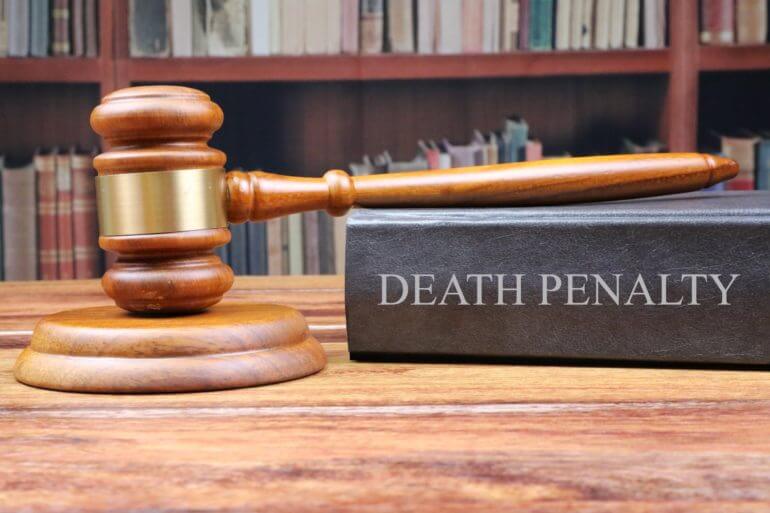
What does Judaism say about the death penalty?
Dear Jew in the City,
What does Judaism say about the death penalty?
Sincerely,
Eric
Dear Eric,
That’s an interesting question. I assume you mean “What does Judaism say about the death penalty in secular law?” because anyone with even a rudimentary knowledge of the Torah knows that capital punishment is all over Jewish law. But, surprisingly, even in Jewish law the position on the death penalty is more nuanced than it would appear at first glance.
To execute certain offenders is a mitzvah in the Torah. Actually, according to the Rambam, it’s four separate mitzvos – one for each of the four types of execution that were meted out for various categories of crimes. Nevertheless, despite the apparently bloodthirsty system of justice called for by the Torah, the reality was far more restrained.
In order to be liable to the death penalty, two witnesses had to see the crime committed. Additionally, a person had to be warned before committing the offense. So, imagine the scenario. It’s Shabbos and you see Joe holding a lighter. You say, “Don’t strike a flame – it’s Shabbos and that’s a capital offense!” Joe has to consciously choose to go ahead with the violation knowing that it’s a potential death sentence and that he’s being observed. In such circumstances most people would refrain.
Now let’s say that Joe is particularly stubborn. He goes ahead and lights that fire on Shabbos anyway. The odds of him actually being executed are still pretty slim. The court that would hear his case consisted of 23 judges, and things were weighted to the advantage of the accused. For example, one needed a simple majority (12 to 11) to acquit, but a supermajority (13 to 10) was required in order to condemn. If there was a decision of 12 to 11 in favor of conviction, it was a hung jury and deliberations would continue. Those who argued in favor of conviction were allowed to change their votes to acquit, but those who voted for acquittal couldn’t change their votes to convict.
There are more ways in which the proceedings favored the defendant, so the possibility of execution existed, but it was pretty uncommon. The Mishna in Makkos (1:10) tells us that if a Sanhedrin carried out an execution once in 70 years, it was considered a “bloody court.” The primary purpose of the death penalty was to serve as a deterrent.
Now, this is all well and good, but if you want to know Judaism’s position on the death penalty in secular courts, there’s one more piece you need to know.
Judaism believes that there are seven mitzvos that God commanded Noah, which apply to all of his descendants – i.e., all of mankind. Six of these are negative commandments (“thou shalt nots”): not to murder, steal, worship idols, blaspheme, engage in illicit sexual relations, or eat the limb of a live animal. One of them is a positive mitzvah (“thou shalt”): to establish courts of justice. We don’t micromanage how these courts should function; the Torah only requires that they be just.
So, should you vote for the candidate who supports capital punishment or the candidate who opposes it? That’s up to you. I’ll explain why.
The mitzvos are intended for Jews, not for everyone. We don’t petition the government to enforce Shabbos observance or to shut down McDonald’s and Burger King. It’s on us to observe the mitzvos. We only object if a law keeps us from fulfilling our obligations; we don’t try to push our trip on everyone else.
Of course we should vote our consciences and in line with our religious sensibilities, but even then things can vary from person to person. Here are some examples:
- The Torah permits unfettered ownership of weapons. When it comes to gun control, some observant Jews vote in favor of open carry, concealed carry, whatever. However, the Torah doesn’t require weapon ownership. Accordingly, it’s equally okay to vote in favor of tighter gun laws or outright bans.
- The Torah considers unnecessary abortion to be murder. Accordingly, many Jews vote to ban abortion on demand, considering it evil. However, Judaism permits, and even requires, abortion in a number circumstances, including the mother’s mental health in cases of rape or incest. Therefore, many Jews support free access to abortion, to ensure that it’s available when called for (and if others “abuse the privilege” in the eyes of halacha, that’s on them).
- I know better than to get into the matter of marriage equality. Suffice it to say that an equally dichotomous argument could be made.
Similar to these cases, one might think, “The Torah clearly supports the concept of the death penalty, therefore I’ll vote for the candidate who supports it.” One might also think, “The Torah clearly goes out of its way to avoid the death penalty in practice. I’ll vote for the candidate who opposes it.”
Of course, if you’re torn on this or any other religious matter that affects which side you choose to support in a political issue, you should reach out to your own rabbi and talk it over. (This doesn’t mean that he gets to dictate your opinion, just that he’s a good resource to consider all sides of an issue.)
Sincerely,
Rabbi Jack Abramowitz
Educational Correspondent
Follow Ask Rabbi Jack on YouTube
If you found this content meaningful and want to help further our mission through our Keter, Makom, and Tikun branches, please consider becoming a Change Maker today.







